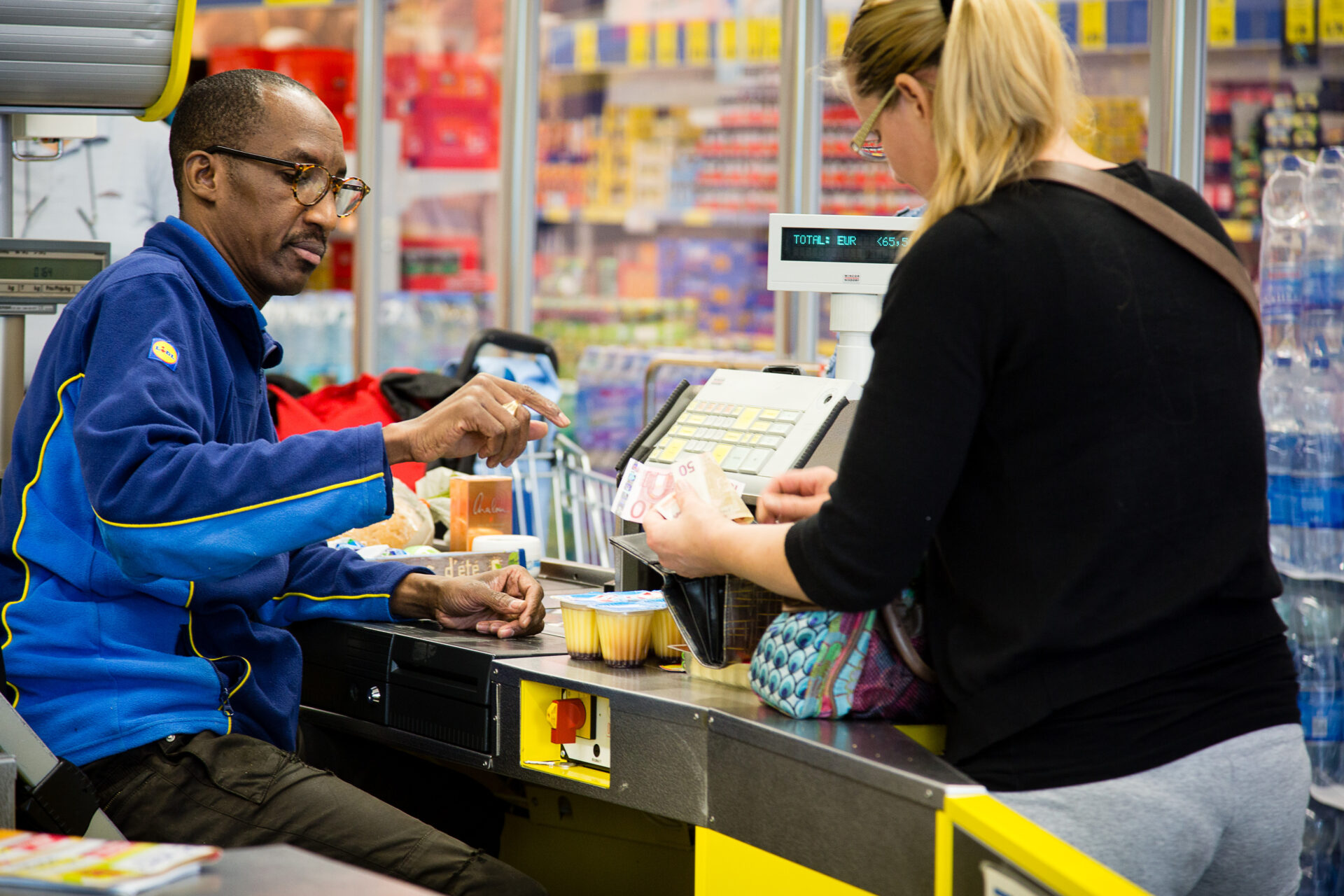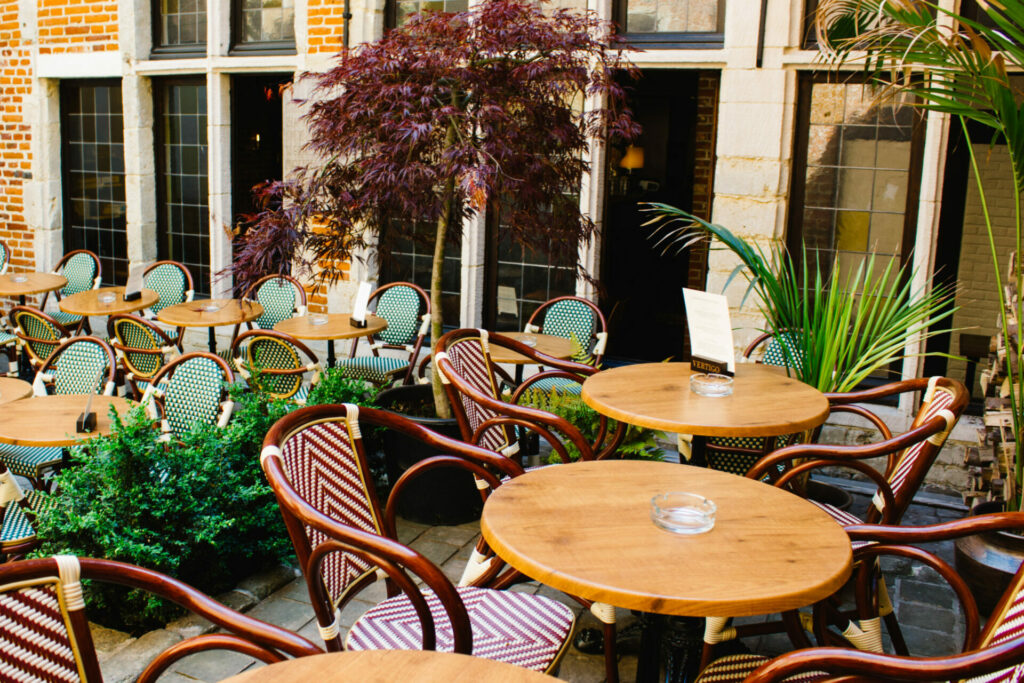In the second quarter of this year, Saudi state oil company Saudi Aramco broke the world record in making the biggest profit in three months ever: €47.4 billion. And it is not the only company that is profiting during times of soaring inflation.
So-called superprofits are common across the energy sector: companies such as Aramco, ExxonMobil, Chevron and TotalEnergies achieved excellent results as the economy recovered after the Covid crisis and Russia’s war on Ukraine is also contributing to their profits, De Morgen writes.
Differences within the energy sector
While the cost of pumping oil remains the same, companies are now receiving $100 instead of $60 per barrel, leading to a steep increase in profits. “In times of Covid, they also knew the other side of the coin, when they did not lose their oil,” said Tom Simonts, chief economist at insurance company KBC.
But criticism is growing. “It is immoral that, thanks to this energy crisis, oil and gas companies are making record profits at the expense of the poorest people and communities and at the expense of the climate,” UN Secretary-General Antonio Guterres said early this month.
Energy suppliers, on the other hand, have suffered the consequences of inflation, as a number of companies have gone bankrupt in recent months. As electricity and gas prices are subject to government supervision and consumers can easily switch to another supplier, the competition and regulation keep prices relatively low.
Food shortages and struggling supermarkets
On the other hand, prices of oils and fats, dairy products, fish, bread and grains are more than 10% higher than a year ago. The Dutch supermarket giant Ahold Delhaize saw its turnover rise almost 12% in the first half to €41.2 billion.
At the same time, the costs of supermarkets have risen even more, resulting in a decrease in the profit margin to 3.4%. “The claim that we charge more than necessary is untrue. It does not correspond to our values and standards and is nonsense,” CEO Frans Muller fiercely stated in the Dutch press.
In Belgium, retailers struggle even more, as a lot of price fighters compete with Colruyt, Albert Heijn, Jumbo, Lidl and Aldi. That is good news for the customer, as supermarkets will not simply pass on the higher prices. But it puts these companies under pressure; Colruyt saw its stock market value fall by 42.3% in one year.

Credit: Belga/Siska Gremmelprez
Large, global food companies on the other hand are making a profit. The turnover of the Coca-Cola Company rose by 12% last quarter. As their products are so sought after, the customer is willing to pay a little more money for them, so they should not cut their margins.
Farmers, on the other hand, are taking severe losses. As they negotiate their rates annually, they can only charge higher costs after a long delay.
Banks benefit from higher interest
Belgian bank insurer KBC made a profit of €811 million while international bank BNP Paribas based in Belgium has seen profits of €3.2 billion, exceeding the expectations of profit analysts.
“A lot of lights are back to green after a difficult period,” says Simonts of KBC. “Due to the increase in interest rates for credit, there are decent prices again. Do not forget that we lent money as good as free for years.”
These profits are thanks to the rise in the base interest rate by the European Central Bank by 0.5 percentage points last month. With this, the ECB aimed to fight inflation by making loans more expensive. As a result, the banks also charge higher percentages for lending money, and can thus make more profit.
Related News
- Belgian banks perform well despite economic crisis
- Food prices continue to rise due to extreme drought
- Meal vouchers increasingly popular extra-legal benefit
Still, there is no increase in the interest on the savings account for the time being. “We provide credit at rates that do not yet sufficiently reflect that money has become more expensive,” said KBC CEO Johan Thijs.
“The interest on the savings account strongly depends on the ECB interest rate. We expect it to be 1.25 to 1.5% by the end of this year.” Only then would your savings be able to yield a little more.
Hospitality sector is the biggest victim
The hospitality sector suffered huge hits during the Covid crisis, as business owners and employees were left without income for months. A lot was therefore expected from 2022, when bars and restaurants welcomed guests again. That effect lasted for a few months after the Covid measures were lifted but has somewhat worn off.
The increased inflation has had a negative impact, as the automatic indexation of wages and higher prices for energy, food and drink forces bars and restaurants to accept smaller margins or increase their prices.

Credit: Vertigo
But if they would raise their prices to make the customer pay for inflation, they are at risk of not having any business at all. “Our entrepreneurs try to limit hitting customers in their wallets by using alternatives,” said Matthias De Caluwé, CEO of Horeca Vlaanderen. For example, some save on staff, use cheaper ingredients or offer smaller portions, according to a survey.
For tour operators and airlines, it is different. "The urge to leave after the Covid crisis still has an effect here: everyone wants to go on holiday this year," says Simonts. "Companies like Tui, Ryanair, Airbnb and Booking.com have achieved excellent financial results."
But that, in turn, has a negative impact on bars and restaurants, as people can only spend their more limited disposable income once.

